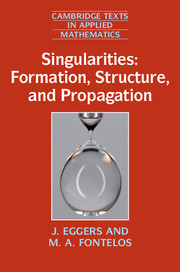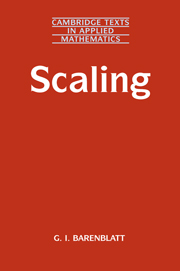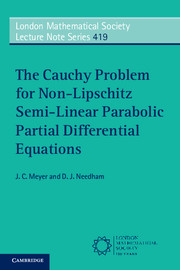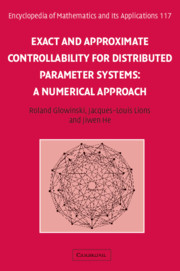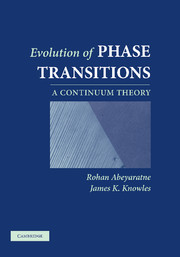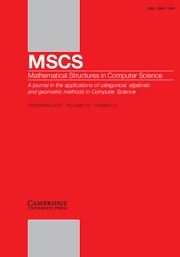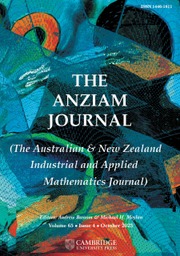Singularities: Formation, Structure, and Propagation
$77.99 ( ) USD
Part of Cambridge Texts in Applied Mathematics
- Authors:
- J. Eggers, University of Bristol
- M. A. Fontelos, Universidad Autónoma de Madrid
- Date Published: October 2015
- availability: This ISBN is for an eBook version which is distributed on our behalf by a third party.
- format: Adobe eBook Reader
- isbn: 9781316355398
Find out more about Cambridge eBooks
$
77.99 USD
( )
Adobe eBook Reader
Other available formats:
Paperback, Hardback
Looking for an examination copy?
If you are interested in the title for your course we can consider offering an examination copy. To register your interest please contact [email protected] providing details of the course you are teaching.
-
Many key phenomena in physics and engineering are described as singularities in the solutions to the differential equations describing them. Examples covered thoroughly in this book include the formation of drops and bubbles, the propagation of a crack and the formation of a shock in a gas. Aimed at a broad audience, this book provides the mathematical tools for understanding singularities and explains the many common features in their mathematical structure. Part I introduces the main concepts and techniques, using the most elementary mathematics possible so that it can be followed by readers with only a general background in differential equations. Parts II and III require more specialised methods of partial differential equations, complex analysis and asymptotic techniques. The book may be used for advanced fluid mechanics courses and as a complement to a general course on applied partial differential equations.
Read more- Discusses a wide range of singular phenomena from a unifying point of view
- Makes current techniques for studying singularities available to a wider audience
- Contains 70 examples to reinforce the reader's understanding of important concepts and 180 exercises ranging in difficulty
Reviews & endorsements
"The book will serve as an excellent introduction to the field of singularities in continuum mechanics, and a valuable resource for researchers … In short, a wonderful achievement!"
H. K. Moffatt, Journal of Fluid MechanicsCustomer reviews
Not yet reviewed
Be the first to review
Review was not posted due to profanity
×Product details
- Date Published: October 2015
- format: Adobe eBook Reader
- isbn: 9781316355398
- contains: 125 b/w illus. 8 colour illus. 180 exercises
- availability: This ISBN is for an eBook version which is distributed on our behalf by a third party.
Table of Contents
Preface
Part I. Setting the Scene:
1. What are singularities all about?
2. Blow-up
3. Similarity profile
4. Continuum equations
5. Local singular expansions
6. Asymptotic expansions of PDEs
Part II. Formation of Singularities:
7. Drop break-up
8. A numerical example: drop pinch-off
9. Slow convergence
10. Continuation
Part III. Persistent Singularities – Propagation:
11. Shock waves
12. The dynamical system
13. Vortices
14. Cusps and caustics
15. Contact lines and cracks
Appendix A. Vector calculus
Appendix B. Index notation and the summation convention
Appendix C. Dimensional analysis
References
Index.
Sorry, this resource is locked
Please register or sign in to request access. If you are having problems accessing these resources please email [email protected]
Register Sign in» Proceed
You are now leaving the Cambridge University Press website. Your eBook purchase and download will be completed by our partner www.ebooks.com. Please see the permission section of the www.ebooks.com catalogue page for details of the print & copy limits on our eBooks.
Continue ×Are you sure you want to delete your account?
This cannot be undone.
Thank you for your feedback which will help us improve our service.
If you requested a response, we will make sure to get back to you shortly.
×
